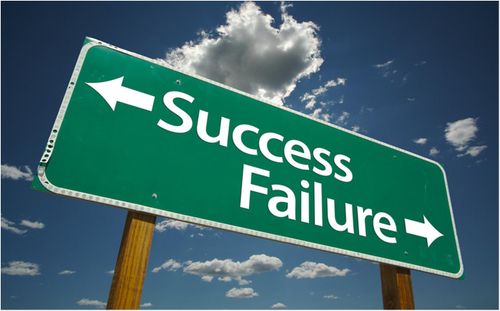Unraveling the Myth of Willpower

I’ve always despised the term “willpower” because it’s one of those words that seems to say something, but says nothing. Applied to weight loss or keeping weight off, willpower is always cited as something you must have to be successful. When patients struggle to lose weight, they tell me it’s because they have no willpower. Willpower is spoken of as if it is the secret weapon in the battle of the bulge but nobody seems to be able to define what willpower is or how to acquire it. What truly bothers me is that willpower is often explained as something intrinsic…that you either have it or you don’t. This is nonsense.
Anyone who has ever lost weight can recall at least one time when they thought “This is it! This is the time I’m really going to keep it off!” You felt as if you were in a groove. You turned away from cake and potato chips. You said no to second helpings. You were invincible! You even bought the smaller jeans to punctuate your accomplishment! But then there was a wedding, or a cruise or just a little, harmless piece of chocolate that you let yourself enjoy. Suddenly, your “willpower” seemed to be gone and you didn’t know how to get it back. Well that ends today.
I have news for you. Successful weight losers do not have more willpower than you do. Unsuccessful dieters do not have less willpower than you do. The popular conception of willpower is nonsense. There is nothing magical about willpower. It is not something that you have one day and lose the next. I’m going to teach you how to make your own willpower. First, let’s expose the myth of willpower.
Willpower found! When you lost all that weight way back when, it began with a conscious decision and a few key factors lined up in your favor. While it may seem that you suddenly had the willpower to start the diet and successfully begin to lose weight, what actually occurred was that emotion (motivation) and an awareness of the positive and negative consequences of weight loss were both in focus. Often by chance, the emotional energy to persevere is so strong that we tolerate hunger, frustration, cravings, etc. You might think that you were not feeling hunger, cravings, or frustration when you were losing the weight but in fact you were. They were simply dwarfed by the high level of emotion and motivation you had to tolerate them.
Willpower lost! Unfortunately, this initial emotional thrust eventually wears off if there’s nothing else to give it more fuel. When willpower seems to suddenly disappear what has happened is that the equation has shifted. Reasons to eat the chocolate and the desire to eat it are suddenly greater than the initial emotional thrust to tolerate this discomfort. At this point, you begin giving yourself permission to go off track. You find yourself in an environment where temptations seem greater than before. You tell yourself things that enable a setback. Willpower didn’t go anywhere. And as you well know, from that point on, it was only a matter of time until the weight returned. You probably remember that awful feeling of powerlessness that you couldn’t grab hold of the reigns and turn things around. Of course, there are also times where an overwhelming emotional event may occur that throws your motivation out the window. 9/11 was such an unfortunate example for many of my patients.
Making your own willpower whether it is losing weight, quitting smoking, or accomplishing any other endeavor, there are a few specific actions that successful people take that make them successful:
1) Create measurable goals and write them down. If you’re not willing to write them down then you’re not really serious about success. Keep reading your goals every day or they won’t stay in the front of your mind. If they’re not in the front of your mind, they’re in the back of your mind. If they’re in the back of your mind, they’re useless.
2) Motivate yourself to accomplish each goal. Ask yourself “What’s in it for me (WIIFM) to accomplish this goal?” Then ask yourself “What is the consequence of failing to accomplish this goal?” Identify short and long-term goals as well as short and long-term consequences. Don’t dance around this issue…be honest. There are real negative short-term consequences of dieting and keeping weight off. Hunger, feelings of deprivation and temporary emotional distress are a few. Fear of being without food as a comfort is another. Having a clear list of benefits that you will gain in the future in exchange for tolerating these negative consequences in the short-term can help you through these tough times. Ask yourself “What do I stand to gain, both now (within a few days) and in the future if I stick to my goal of losing weight.” This is the real definition of willpower: being able to tolerate frustration or discomfort in the present in exchange for a desirable outcome in the future. Perhaps a better phrase for willpower is discomfort tolerance or frustration tolerance. Take your time with this step. Remember, in order to have the ability to tolerate frustration and discomfort when they strike, you need to be acutely aware of “what’s in it for me?”
3) Make clear action steps that you plan to take to accomplish the goal. The goal itself is not as important as understanding the behavioral steps you plan to enact in order to accomplish them. Ask yourself “what am I going to do to accomplish my goal. Also ask, “What do I need to stop doing or do differently if I am to accomplish this goal. For example, don’t ask yourself “How am I going to find the time to exercise?” Ask yourself “How am I going to make the time to exercise.” Then take out your blackberry or schedule book and figure out exactly what you are going to shift around to create the time to exercise.
4) Practice your strategies. Ever notice that the best athletes practice almost EVERY DAY?! Batting practice, free throw practice, the driving range, and on and on. Practice is what makes people successful. It’s not willpower. In case you’re telling yourself that it’s the money, you’re mistaken. There are plenty of highly paid athletes that are bums. Our favorite athletes are generally the ones that practice the most. They try harder and give a little more than the “prima donnas.” We tend to like the players who are shorter, slower, injured, or who are older but simply refuse to give up. Its constant effort, and a refusal to quit, not talent that makes the difference.
5) Think like a winner. When a winner has a setback, they don’t pack it in. They start over. Don’t “catastrophize.” Don’t categorize everything into good or bad, pass or fail. Stop being critical and demeaning of your shortcomings and missteps. If you have a bad day at the Chinese buffet, it’s just one high-calorie meal. It doesn’t mean a thing…unless you tell yourself it does. If you tell yourself it’s a bad day, it becomes a bad day. Tell yourself that your Chinese meal ruined the weekend and you’ve ruined the weekend. Suddenly you’re telling yourself that Friday is a wash and that you might as well give yourself the weekend to have some fun promising that you’ll get back on track on Monday, only Monday never comes. How you think is everything.
There you have it…the mystery of willpower unraveled. The power to make real change and MAINTAIN real change is well within your grasp. You don’t suddenly get it and just as suddenly lose it. Make a commitment to your goals, write them down, document what’s in it for you, read your goals daily, diligently engage in behaviors that support each goal, think like a winner and you will be successful. I know that some of you are reading this and sighing, saying that it’s not so simple. It doesn’t have to be so complicated either. Take a bold step. Start writing some goals down right now and follow the steps I’ve outlined above before you log off. You have the power to change right at this very moment. No willpower required!

